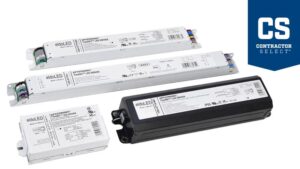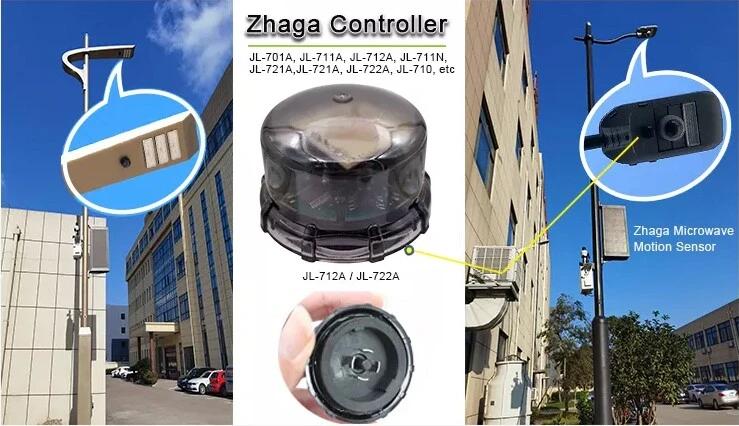Outline
- Introduction
- What Key Challenges Do LED Driver Manufacturers Face in Outdoor Lighting Systems?
- How Do Long-Join LED Street Light Photocell Overcome Protocol and Compatibility Barriers?
- Why Does Signal Accuracy and Dimming Precision Matter—and How Does Long-Join Deliver It?
- How Does Long-Join Ensure EMC-Safe and Interference-Free Performance?
- What Makes Long-Join Photocells Light Switches A Perfect Voltage and Signal Match for Drivers?
- How Do Long-Join Photocontrol Enable Remote Monitoring and Smart Feedback?
- What Engineering Support Does Long-Join Provide to Driver Manufacturers?
- Why Do Leading LED Driver Manufacturers Choose Long-Join as Their Strategic Partner?
- Final Words
In outdoor lighting, the LED driver is more than just a power source. It is the control hub that connects luminaires and photo cell sensors. Without the right compatibility, even advanced systems fail. Protocol mismatches, unstable dimming, or interference can delay projects and damage reputations.
This is where Long-Join bridges the gap. By engineering street light controller solutions that speak the same technical language as leading drivers, Long-Join ensures precision, reliability, and speed to market.

Image Courtesy: Acuity Brands
What Key Challenges Do LED Driver Manufacturers Face in Outdoor Lighting Systems?
Protocol Compatibility Issues
Manufacturers use different dimming protocols—0–10 V, PWM, DALI, DMX. Many drivers and photoelectric sensors lack universal support. The result:
- Flicker
- Erratic dimming
- Total failure
Compatibility charts are vital. Testing before installation is essential. Wireless variants like DALI or 0–10 V add complexity, and mismatches remain frequent obstacles.
Electrical Interference
LED drivers can generate EMI. When voltage or current changes rapidly, nearby electronics suffer. EMI can disrupt driver signals and lead to flickering or malfunction. Mitigation often requires PCB layout care or spread-spectrum techniques to lower interference.
Power Mismatch
Mismatched voltage is a leading failure source. Installing a photocell sensor-led street light rated for 24 V on 277 V systems can instantly destroy components.
Voltage fluctuations or surges also cause false behavior or damage. High-quality drivers and photocells must include over- and under-voltage protection.
Remote Diagnostics
Smart lighting demands remote monitoring. Traditional outdoor led light with photocell offer no feedback. That leaves maintenance teams blind to faults or performance drift.
Modern systems require real-time status, error codes, and signal tracking—even in City-wide networks.
Speedy Engineering & Launch Pressure
Projects cannot wait long for samples, specs, or integration help. Every delay in wiring diagrams, dimming curves, or terminations costs time.
Manufacturers need agile partners offering speedy documentation, swift samples, and integration support to hit tight roll-out schedules.
How Do Long-Join LED Street Light Photocell Overcome Protocol and Compatibility Barriers?
Multi-Protocol Support
- Long-Join fotocelula, such as the JL-242/JL-243 series, natively support 0–10 V dimming. This meets the needs of many LED driver systems
- Their Zhaga and NEMA-compatible products further extend support into digital standards like D4i. This enables seamless plug-and-play integration.
Field-Tested with Major Drivers
Long-Join products are built to interface smoothly with leading brands. For instance, their street light sensors match ANSI C136.41 receptacle standards, making them compatible with driver systems from vendors like Inventronics and Osram that support 0-10 V, DALI-2, and D4i protocols.
Customizable Output Levels
Long-Join designs offer flexible output signal levels. Their JL-242/243 models connect via 5- or 7-pin NEMA receptacles, mapping the gray/violet leads to 0–10 V/1–10 V driver inputs.
They also provide configurable settings—such as time delays, surge arresters for protection, and ambient-level thresholds—easing integration across varied systems.

Why Does Signal Accuracy and Dimming Precision Matter—and How Does Long-Join Deliver It?
In cities and commercial sites, inconsistent light levels harm safety and energy goals. Poor dimming leads to visible flicker and wasted power. Municipal projects demand smooth, linear, drift-free control.
How does Long-Join tackle that with accuracy?
- Their dawn-to-dusk switches use MCU-controlled signal filtering to smooth output and eliminate noise.
- The response time is under 100 ms, ensuring instant adaptation to changing light conditions.
- Precision stays tight with deviation under ±3 %, keeping dimming faithful to setpoints.
Further, here is a table outlining some typical dimming accuracy requirements in lighting applications.
| Application Type | Acceptable Deviation | Response Time | Requirement Notes |
| Street Lighting | ±5% | <500 ms | Must adapt to traffic and safety |
| Commercial Buildings | ±3% | <200 ms | Comfort-driven lighting control |
| Stadium/High Mast | ±2% | <100 ms | Precision is critical for visibility |
| Smart City Networks | ±3% | <150 ms | Sync with IoT-based commands |
How Does Long-Join Ensure EMC-Safe and Interference-Free Performance?
Outdoor lighting systems are prone to EMI from other electrical sources, power surges, or wiring flaws. EMI can corrupt dim signals, causing flicker or failure. Reliability demands interference-free design.
How does Long-Join ensure it?
- Their light control photocells feature EMC-optimized PCB layouts. These come with shielding and grounding for immunity and low emissions.
- They are CE-/EMC-certified. This confirms compliance with strict electromagnetic compatibility standards.
Clean signals mean solid driver behavior and zero flicker. Your system stays stable, even amid urban electrical noise. Here is a table showing common sources of EMI in outdoor lighting systems and their impact.
| Source of Interference | Example Device | Impact on Lighting Signals |
| Switching Power Supplies | LED drivers, chargers | Signal distortion, flickering |
| Wireless Communication | Wi-Fi routers, radios | Data loss in control channels |
| High-Voltage Equipment | Transformers | Unstable dimming and resets |
| Nearby Industrial Loads | Motors, welding units | Voltage fluctuations and noise |
What Makes Long-Join Photocells Light Switches A Perfect Voltage and Signal Match for Drivers?
If output levels don’t align with driver inputs, systems fail—or worse, get damaged. Long-Join helps by offering products with features like:
● Flexible Output Ranges
Long-Join products, particularly the JL-245CN controller, offer both 0–10 VDC and PWM (10 V, 1 kHz) dimming outputs. They cover a wide operating voltage range (120–277 VAC), accommodating common driver inputs without conversion hassles.
● Support for TTL, RS-485, and Other Interfaces
Their modular NEMA 7-pin bases support customizable prong configurations—4-pin, 5-pin, and 7-pin—to accommodate DALI, 0–10 V, and other control signals like TTL and RS-485.
● Customizable to System Needs
Long-Join enables voltage-level matching and signal mapping via modular base design (e.g., swapping out the NEMA receptacle) to match driver impedance and protocol requirements.
Here is a table showcasing LongJoin products’ compatibility with signal interfaces used by LED drivers.
| Interface | Voltage Level | Typical Use Case | Long-Join Compatibility |
| 0–10V | 0–10 V DC | Simple analog dimming | Yes |
| 1–10V | 1–10 V DC | Energy-saving dimming control | Yes |
| PWM | 3–5 V | Precise brightness control | Yes |
| RS-485 | Differential | Long-distance digital comms | Yes |
| DALI | 16 V DC bus | Standardized smart lighting | Yes |
How Do Long-Join Photocontrol Enable Remote Monitoring and Smart Feedback?
Cities and campuses demand more than automated on/off control. They need real-time diagnostics. A streetlamp failure can take up to 72 hours to detect without remote insight. Long-Join solves that in seconds with its JL-245CG.
This product is an LTE Cat-1 (or similar) IoT smart photocell that connects directly via mobile networks for real-time cloud communication. It supports bidirectional MQTT, enabling live data publishing and control commands. Key capabilities include:
- Real-time monitoring of critical electrical parameters like voltage and power usage.
- Immediate fault detection and alerts. This ensures that issues like lamp failures don’t go unnoticed.
The JL-245CG integrates with Long-Join’s UM9900 smart street lighting platform, providing full remote control and diagnostics via web interfaces and GIS mapping.
What Engineering Support Does Long-Join Provide to Driver Manufacturers?

Clear documentation, fast samples, and solid collaboration keep projects moving. Delays in information or deliverables slow development—and cost money.
Long-Join’s Support in Action:
● Comprehensive Technical Support
Long-Join boasts a strong R&D and technical team with over two decades of experience in intelligent street-light controller accessories. They provide robust post-sales technical guidance to every customer.
● Extensive Documentation & Custom Deliverables
The company offers OEM/ODM services, tailored product parameters, and full documentation support—including shell color, packaging, and more. Customers can request integration drawings, technical manuals, or testing reports.
● Fast Sampling & Streamlined After-Sales Processes
Long-Join’s service includes general and customized sample services—ideal for quick prototyping. They also offer rigorous after-sales procedures: initial response within 16 hours, engineering analysis, and documented resolution via an 8D report.
Why Do Leading LED Driver Manufacturers Choose Long-Join as Their Strategic Partner?
- Long-Join light sensor photocell switches support 0–10V, PWM, DALI, and UART/RS-485. This ensures smooth integration with global driver platforms.
- MCU-based filtering delivers drift-free dimming with <±3% deviation and <100 ms response. This guarantees consistent brightness control.
- CE- and EMC-certified PCB layouts minimize interference. Drivers remain stable even in dense outdoor networks.
- Dedicated FAE teams provide integration drawings, debug manuals, and quick sampling. This reduces OEM development cycles.
- Signal levels, dimming curves, and communication profiles can be tailored. Manufacturers receive driver-specific solutions.
- Models like JL-245CG include LoRa/NB-IoT feedback. Voltage, current, and errors can be monitored remotely in real time.
Final Words
Smart photocells are essential for precise control, reliable communication, and long-term efficiency in modern lighting networks. Their integration supports both performance and sustainability goals. Chi-Swear supplies Long-Join smart photocells with proven quality and engineering support. They are a dependable partner for lighting manufacturers seeking innovation and reliability.
External Links
- https://en.wikipedia.org/wiki/0-10_V_lighting_control
- https://www.dali-alliance.org/
- https://www.researchgate.net/publication/309340604_An_Experimental_Study_of_Conducted_EMI_Mitigation_on_the_LED_Driver_using_Spread_Spectrum_Technique
- https://zhagastandard.org/
- https://www.nema.org/
- https://en.wikipedia.org/wiki/Electromagnetic_interference






